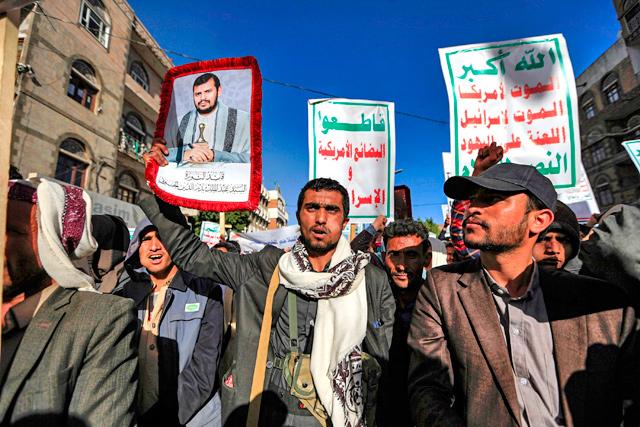- International News
- Tue-2021-01-26 | 07:19 pm

Nayrouz News Agency : Death, destruction and starvation have obliterated the aspirations that propelled a 2011 uprising in Yemen, with the hopes of the country crushed by war and the world’s worst humanitarian crisis.
As the Arab Spring gripped the region, thousands of Yemenis took to the streets of the capital Sanaa on January 27 that year, demanding president Ali Abdullah Saleh step down, while loyalists staged their own counterprotests.
Shockwaves from the popular movements shaking Tunisia and Egypt were quick to reach Yemen, long the Arabian Peninsula’s poorest country and surrounded by the rich Gulf monarchies.
"The people want the fall of the regime,” the protesters chanted, eager to shrug off Saleh’s iron-fisted rule.
Saleh had likened governing Yemen to "dancing on the heads of snakes”, but nonetheless had remained in power since 1978, while resentments smouldered.
"For 50 years there had been political under-representation, social inequality, poverty, corruption, and identity struggles,” said Maged Al Madhaji, a witness to the uprising and now director of the Sanaa Centre for Strategic Studies.
In the beginning, the demonstrations were peaceful and spontaneous, said activist Yasser Al Raini, who at the time was a coordinator of youth groups.
"The revolution brought together all sections of society to combat tyranny and injustice, and to build a new Yemen in the spirit of partnership and without excluding anyone,” he told AFP.
In a country where there are enough guns for everyone to have their own, the movement, Raini said, remained peaceful until Saleh’s forces opened fire on protesters in March.
Cradle of the revolt
A decade later, Yemen is engulfed in a bloody power struggle that erupted in 2014 between the government of President Abed Rabbo Mansour Hadi and the Iran-backed Houthi rebels, who control the capital Sanaa and most of the north.
The internationally recognised government was unable to stop the insurgents, prompting the 2015 intervention of a Saudi-led military coalition.
Today, millions of Yemenis are on the brink of famine with the economy destroyed and schools and hospitals in tatters, while the relentless Houthi campaign for more territory grinds on.
According to the United Nations, more than three million people have been displaced and close to 80 per cent of the population of 29 million is in need of some form of aid for survival.
While the goals of the 2011 movement were to unify Yemenis, the Red Sea state is more fractured than ever.
According to Mane Al Matari, another leader of the uprising, it was Saleh’s desire to remain in power and to pass the mantle to his son Ahmed, who commanded the Republican Guard, that "unified Yemenis” in January 2011.
The following month, Saleh promised reforms and vowed he would not run for office when his term ended in 2013, but the move only emboldened his opponents.
A turning point came on March 18 when Saleh’s forces opened fire at protesters, killing at least 52 and leading to the defection of dozens of politicians and soldiers.













